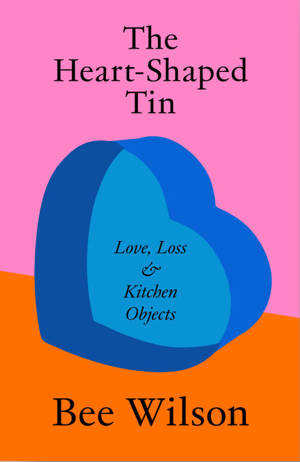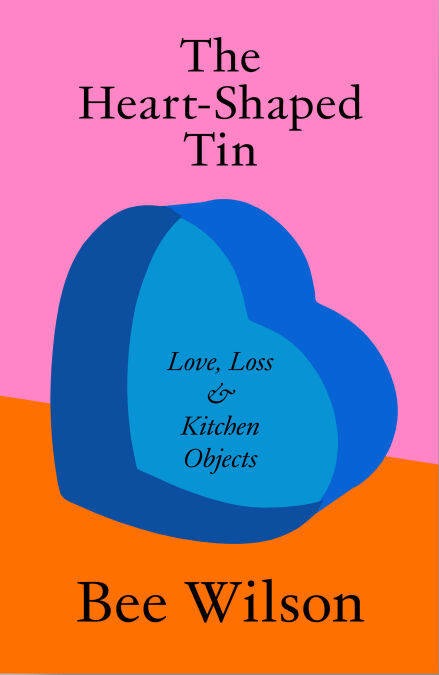
- Afhalen na 1 uur in een winkel met voorraad
- Gratis thuislevering in België vanaf € 30
- Ruim aanbod met 7 miljoen producten
- Afhalen na 1 uur in een winkel met voorraad
- Gratis thuislevering in België vanaf € 30
- Ruim aanbod met 7 miljoen producten
Zoeken
€ 20,66
+ 20 punten
Omschrijving
**A 2025 book to look out for by the Guardian and Sunday Times**
This strikingly original account from award-winning food writer Bee Wilson charts how everyday objects take on deeply personal meanings in all our lives.
One ordinary day, out of the blue, the heart-shaped tin in which Bee Wilson baked her wedding cake falls to the ground. This should have been unremarkable, except that two months earlier her husband left her for another woman.
In a search of others who had also invested kitchen objects with strong meanings and emotions, Wilson found that this way of thinking might be the rule rather than the exception. Even those who believe they’re not at all sentimental might have a weak spot – a grandmother’s wooden spoon or a salt shaker inherited from a parent.
In a late-capitalist world flooded with so much clutter, what to keep and what to let go becomes an overwhelmingly existential question. We hold on to seemingly useless things because of the feelings they inspire, and every time we let go of a cherished object there is a sense of loss. These items, Wilson argues, become powerful symbols of identity and memory, representing everything from friendship, grief and love to superstition, safety and political resistance.
Crossing continents, cultures and time periods, Wilson weaves her own intimate experiences into a wider narrative that reaches back to the earliest human civilisations. Thoughtful, sharp and beautifully written, The Heart-Shaped Tin is a profoundly moving examination of our relationship to the physical world – and the people around us – in an increasingly rational and secular age.
This strikingly original account from award-winning food writer Bee Wilson charts how everyday objects take on deeply personal meanings in all our lives.
One ordinary day, out of the blue, the heart-shaped tin in which Bee Wilson baked her wedding cake falls to the ground. This should have been unremarkable, except that two months earlier her husband left her for another woman.
In a search of others who had also invested kitchen objects with strong meanings and emotions, Wilson found that this way of thinking might be the rule rather than the exception. Even those who believe they’re not at all sentimental might have a weak spot – a grandmother’s wooden spoon or a salt shaker inherited from a parent.
In a late-capitalist world flooded with so much clutter, what to keep and what to let go becomes an overwhelmingly existential question. We hold on to seemingly useless things because of the feelings they inspire, and every time we let go of a cherished object there is a sense of loss. These items, Wilson argues, become powerful symbols of identity and memory, representing everything from friendship, grief and love to superstition, safety and political resistance.
Crossing continents, cultures and time periods, Wilson weaves her own intimate experiences into a wider narrative that reaches back to the earliest human civilisations. Thoughtful, sharp and beautifully written, The Heart-Shaped Tin is a profoundly moving examination of our relationship to the physical world – and the people around us – in an increasingly rational and secular age.
Specificaties
Betrokkenen
- Auteur(s):
- Uitgeverij:
Inhoud
- Aantal bladzijden:
- 208
- Taal:
- Engels
Eigenschappen
- Productcode (EAN):
- 9780008685645
- Verschijningsdatum:
- 7/05/2025
- Uitvoering:
- E-book
- Beveiligd met:
- Adobe DRM
- Formaat:
- ePub

Alleen bij Standaard Boekhandel
+ 20 punten op je klantenkaart van Standaard Boekhandel
Beoordelingen
We publiceren alleen reviews die voldoen aan de voorwaarden voor reviews. Bekijk onze voorwaarden voor reviews.











